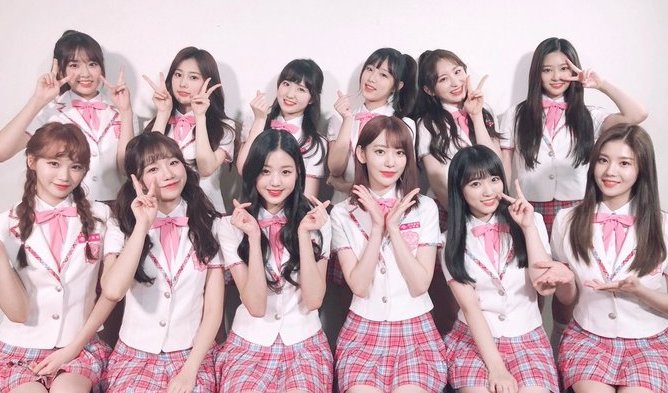
For the fourth year running, a sea of fresh faces in uniforms and large name tags compete to show off their skills and charms, all for a nearly guaranteed successful debut. Mnet’s survival show series Produce 101 needs little introduction.
For those somehow still unfamiliar, its concept is simple: the top trainees each season form a temporary project group that promotes for a period of time before disbanding, hopefully with much-heightened recognition and popularity for the members.
In theory, it sounds like a win-win situation for all parties, but over the years, it has morphed into complications for many participants after the show.
When members of boy groups Up10tion, Victon and Myteen were revealed to be competing in the currently airing season entitled Produce X 101, it is unsurprising that the news was met with mixed reactions from fans who are torn between wanting their favourite idols to experience guaranteed-success debuts, but having to deal with the long-term aftermath of what it means for the group as a whole.

Produce 101 has opened a floodgate of K-Pop companies and trainees who use the show as publicity, even if the negative consequences seem to outweigh the positive. The obvious benefit is increased exposure from appearing on a show with an already established following, something small companies stripped of resources might not be able to provide as easily. Yet, companies don’t seem to realise that Produce 101 is not the easy way out, especially for existing rookie groups who tend to have a lot more to lose than gain from joining these shows.
If they make the final line-up, the members won’t be allowed to promote in their original groups for years, ruining their still building momentum. This is especially since contracts for Produce 101 project groups keep getting longer. The winners of the current season will be promoting for a whopping five years. That’s nearly the contract length of a regular boy group, but still cleverly marketed as a temporary project group to milk fans’ sentimentality and create a sense of urgency.
Thus, these groups might end up either promoting without multiple core members or are forced entirely into hiatus. Ironically, this leads to their original groups being forgotten, which is precisely what they were trying to avoid in the first place.

In some cases, many of these groups haven’t been given a proper chance to succeed or fail, before members are sent to such survival shows. Rookie group Myteen members Kim Kookheon and Song Yuvin for instance, consider Produce X 101 as their “last chance”, even though the group debuted less than two years ago, with just one group comeback to their name.
In fact, this is not Myteen’s first survival show appearance. Shortly after their debut, members Kookheon, Junseop and Chunjin participated in JTBC‘s Mixnine, placing 18th, 36th and 54th respectively. Besides mixtapes, acting and OST gigs for certain members, Myteen goes completely off the radar during long hiatuses in between their group comebacks due to little support from their company Music Works. Former member Taevin left the group to focus on his acting career, although it seems as if Myteen has barely had enough group schedules to begin with.
The trend of using Produce 101 as Rescue 101 started most notably in Season 2, where the participation of Pledis Entertainment’s 2012 boy group NU’EST drew first raised eyebrows, and then sympathy.

Subsequently, when member Kim Jonghyun failed to make it into the final line-up despite an outstanding performance, it fuelled viewers’ determination to help his group succeed. Besides new accolades to their name, NU’EST’s clinched their first music show win since their debut with recent comeback “Bet Bet”.
NU’EST’s miraculous turnaround from being on the brink of disbandment to one of top groups in K-Pop, meant that countless ‘nugu’ groups started to turn to such survival shows to ‘revive their career’, even if nobody has since been able to emulate such a success story.
It has also led to a frankly ridiculous mentality that Produce can solve all of a company’s problems. Lee Hangyul, a current Produce X 101 participant and member of pre-debut team IM66, has said that their participation in Produce 101 is in hopes of “saving” their struggling company MBK Entertainment. This is despite the fact that Produce X 101 would also mark the second survival show appearance for several of these trainees, having participated in KBS‘ The Unit, with IM66 member Kim Kijung managing to debut with UNB.

For MBK Entertainment, with its poor track record of keeping even their most successful acts such as T-ara, SG Wannabe and Davichi in the company, perhaps the issue lies in mismanagement more than anything else. I.O.I member Jung Chaeyeon did not manage to turn things around for MBK’s girl group DIA, who have been around since 2015. Why would this be any different?
Similarly, Cube Entertainment added Kwon Eunbin, who placed 35th on the show, to their existing girl group CLC after the show in hopes of creating buzz for the group, to little effect until years later, when the impact of the addition is hard to measure.
Despite their wildly successful run, the members of Produce 101’s first group I.O.I have unfortunately met with lesser success since. Two years after their disbandment, and now discussions are being held for a possible I.O.I reunion.
Individually, the I.O.I members mostly get a decent amount of exposure through acting and variety gigs but their respective groups have barely gotten the same amount of attention. This divide between I.O.I and non-I.O.I members can be most evidently seen in Jellyfish Entertainment‘s girl group Gugudan which consists of two I.O.I members Sejeong and Mina, as well as Produce 101 runner-up and fan favourite Nayoung. Gugudan debuted in the middle of I.O.I’s promotions, a decision that was met with much criticism from netizens. To make matters worse, many felt that the concept did little justice to the talent the trio had shown. The non-I.O.I girls have also since had little opportunities besides an occasional OST or variety show appearance for selected members.

Conversely, Sejeong’s solo debut with “Flower Road,” was produced by Block B‘s Zico. The combined power of their names snagged her a music show win, a feat that Gugudan has yet to achieve nearly three years since their debut. Sejeong and Mina are also active in the acting and variety scene. This is in spite of Jellyfish Entertainment having a good track record of balancing solo and group activities with their popular boy group VIXX. As what seems like a final attempt at reliving the long-gone Produce 101 hype and increase exposure for the group as a whole, the three Produce 101 girls debuted last year as a subunit Gugudan SeMiNa, to little visible results for the group.
While the similar situation these groups are in can be attributed to a lack of strategic promotions to keep the post-Produce momentum going — or in Pristin‘s case, an on-going hiatus for nearly two years for no reason whatsoever — the crux of the problem seems to also lie in Produce 101 viewers who are invested in supporting only the I.O.I member but not the group they belong to, even if the point of their participation in the first place was to help their entire group succeed.

After all, the best success story from I.O.I. is undoubtedly Chungha, who debuted as a soloist under an entirely new company, MNH Entertainment. Unlike many of the I.O.I girls, MNH Entertainment was able to devote all their resources into fuelling her career without having to consider other less popular members. With their support, Chungha has kept a strong presence by performing in festivals both in and out of Korea, with appearances in variety scene as well. Her latest effort earlier this year “Gotta Go” won seven music show awards, making it one of the most awarded songs this year thus far.
The truth is: debuting in Produce 101’s groups does not ensure any sustainable success for the members or their groups after disbandment, especially if companies don’t have the strategies planned to convert the short-term success into long-term ones. Perhaps the better solution for many K-Pop companies would then be to focus their efforts on actually providing support to their artists instead of taking the lazy way out. Yet, this is always easier said than done, and it seems as if companies will continue to learn it the hard way.
(Mnet, The Korea Times; Images via MNH Entertainment, MBK Entertainment, Jellyfish Entertainment, Music Works, Mnet)



